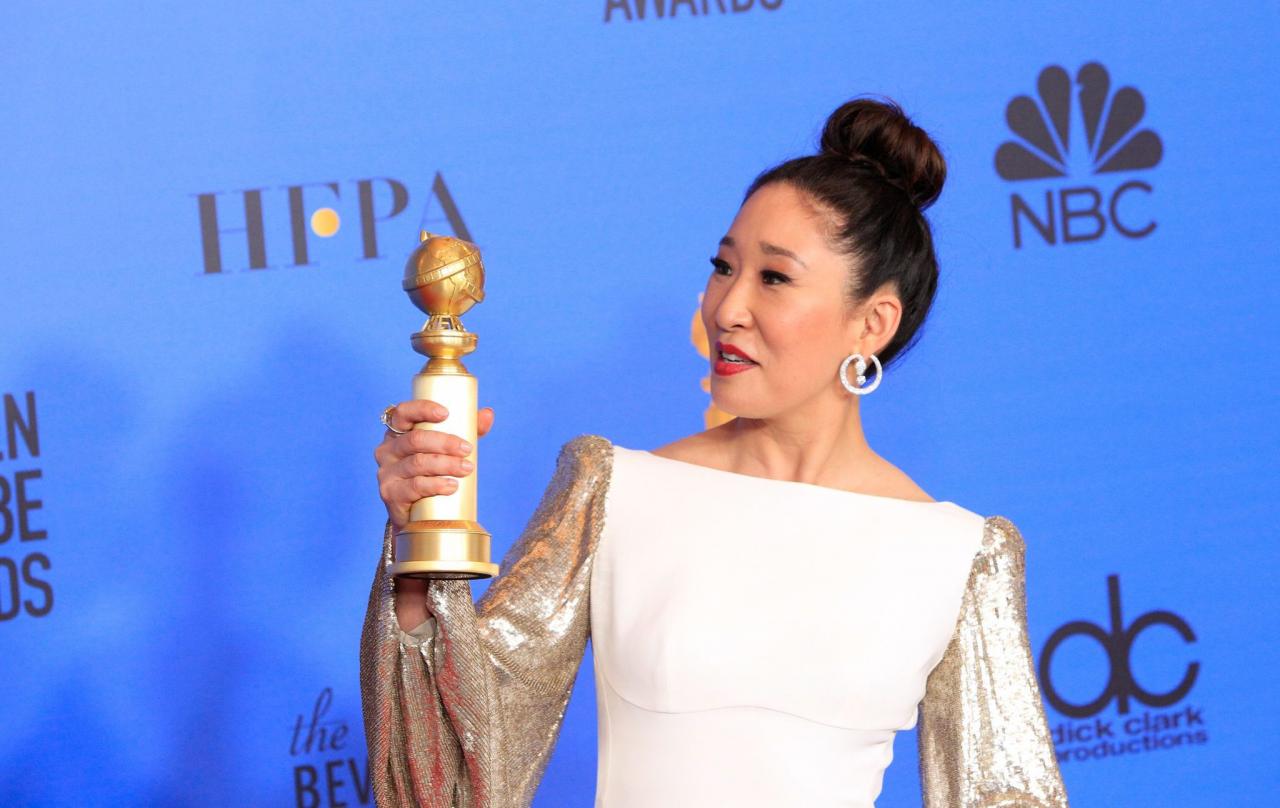[ad_1]
Netflix’s new dramedy fails to supply greater than a superficial look on the largest questions of contemporary academia, which it claims to contemplate.
What makes an English diploma useful? What does good educating appear to be on the school stage? Should humanities professors double down on “critical theory” and id politics, together with increasing or eliminating the oppressive white male canon to make courses attention-grabbing? Or ought to they return to shut readings of classics and re-assert the concept that literary worth and cultural value are greater than mere societal constructs?
These are the superb questions Netflix’s new dramedy The Chair raises however fails to wrestle with. To ask the present to resolve these points could be naive; however to deal with them past the merely superficial stage will not be unreasonable. If creators Amanda Peet and Annie Julia Wyman—the latter an Ivy League Ph.D. herself—are going by means of the difficulty of constructing viewers care in regards to the arcane careers of English division professors, which is a activity they succeed at splendidly, then why not go to the difficulty of weighing in meaningfully in regards to the tradition warfare points that can make or break academia within the years to come back?
The present not less than makes the try. One of the elemental plotlines includes cancel tradition, one other the battle for sitting butts (enrollment wars) between a youthful, hip professor and a stodgy older one. Unfortunately, a lot because the Ninja Turtles T-Shirt sporting, Britney Spears lip-syncing hipster blurs the strains between irony and authenticity with out carrying out both to satisfaction, The Chair merely mirrors the burning larger ed polemics of our time with out weighing in on whether or not wokedom or white privilege is the larger wrongdoer.
Let’s start with the extra distinguished of the 2 plotlines. Professor Bill Dobson (Jay Duplass) points a farcical Roman salute throughout class, which is recorded by scholar cellphone and subsequently stirs an outrage. Student protestors demand his resignation, and the college administration worries that the damaging publicity will harm donations and recruitment. Recently appointed division chair Professor Ji-Yoon Kim (Sandra Oh) should thread the needle between a agency public rebuke and saving the profession of a person she personally likes and, for essentially the most half, professionally respects.
So far so good, besides that the entire “cancel culture” incident round which the plot revolves is a whole strawman. Who, within the age of the iPhone, makes a Sieg Heil aside from drunken adolescents or precise neo-Nazis? Without swinging the plot pendulum to the evangelical proper—a conservative Christian professor defends conventional marriage, for example—there are many examples of cancel tradition that will have been extra compelling. Philip Roth’s crypto-black professor accused of racist remarks in The Human Stain, involves thoughts. Other low hanging fruit would have been a closeted Trump-voting professor, outed by on-line sleuthing, or a professor who takes concern with ideas like “structural racism” or “defund the police.” Even some fictionalized model of the Yale Halloween costume controversy over “cultural appropriation” would have been extra poignant. Instead, we get a Nazi salute.
Professor Ji-Yoon seems, nearly till the ultimate second of the present’s final episode, to defend Professor Dobson and acknowledge the absurdity of the woke mobs. But then, on the listening to the place the professor’s destiny is to be determined, she—presumably just like the present’s creators and writers—hedges her ideological bets. If we fireplace Professor Dobson, she explains to the college president, however the faculty doesn’t actually change, the protestors can be on the picketing line another time. Thus the professor validates the scholars’ anger—however to what ends?
What deep structural change does the college want? The present gives no reply, or barely a touch of 1, as a result of Professor Ji-Yoon is ousted as chair with out uttering any significant strains about what a “reformed” college ought to appear to be. Do we’d like extra scholar activism or much less? Do we have to hold the outdated and unpopular academics or kick them out the door for the younger hip ones? How will English, and humanities colleges typically, enhance enrollment in our new age of automation and technocracy? For a pacesetter of a division, she has little to say on these points.
The present’s ideological indeterminacy—its failure to take a stand, actually—is equally obvious in one other subplot: the train in co-teaching a course by Professor Rentz (Bob Balaban) and Professor Yaz McKay (Nana Mensah). The former is outdated and white, with slumping enrollment numbers for his courses; the latter is younger, a minority (black), and exceedingly standard, to the purpose that she is being recruited by extra distinguished colleges. Such dynamics certainly exist in lots of departments throughout our nation, and the banter between the 2 of them, in addition to between them and the scholars, factors to actual issues.
In one scene, Professor Rentz seems to be bested by a scholar when, throughout a lecture on Melville, the scholar factors out that the creator was a wife-beater. The pro-Professor McKay faction appears giddy. But then the scene ends, with none longer peroration on why the pedagogical activity at hand needs to be dissecting the textual content or discussing the admittedly patriarchal time through which the e book was written. Are relative low cost photographs on authors who’re fatally flawed by at this time’s ethical requirements a window onto some extra significant form of tutorial expertise we’re lacking out on; or are they an excuse to dismiss the work out of hand?
Another, equally unsatisfying scene depicts Professor McKay’s college students showing to refashion literary texts into Hamilton-style musical units replete with track and dance. Fine. But what’s the upshot, apart from the peeved look of a curmudgeonly Professor Rentz, who later explains to McKay that educating will not be a recognition contest? Again, is the takeaway that one-upping the outdated white man is a victory in itself for the forces of progress, or does the English-class-cum-performance-art really evince a deeper understanding and important engagement of the textual content than a Socratic seminar? If the reply is the latter, it’s not articulated by the in any other case fiery Yaz McKay.
The present, like Sandra Oh’s character, Professor Ji-Yoon, appears to wish to provide a bit of one thing for each the classical liberals of the “great books” ilk and the vanguard of the cultural revolution, unexpectedly. Unfortunately, as we on the suitable are discovering out, whereas the classical liberal crowd comes from a convention that brooks dissent and trades in open debate, the neo-Maoist enforcers of our present Red Guards don’t. Well-intentioned liberals can solely placate the woke for therefore lengthy; simply ask Erika Christakis, the Yale professor who had the gall to say that as a substitute of a Halloween costume code college students ought to focus on their variations or ignore the perceived offender and transfer on.
In occasions when the brink for “courage” has grow to be so low the unwoke usually aren’t even conscious they’ve crossed it, the least the commanders of the hovering heights of America’s leftist cultural hegemony may do is present a bit of backbone.
Kurt Hofer is a local Californian with a Ph.D. in Spanish Literature. He teaches highschool historical past in a Los Angeles-area unbiased faculty.
[ad_2]
Source hyperlink















